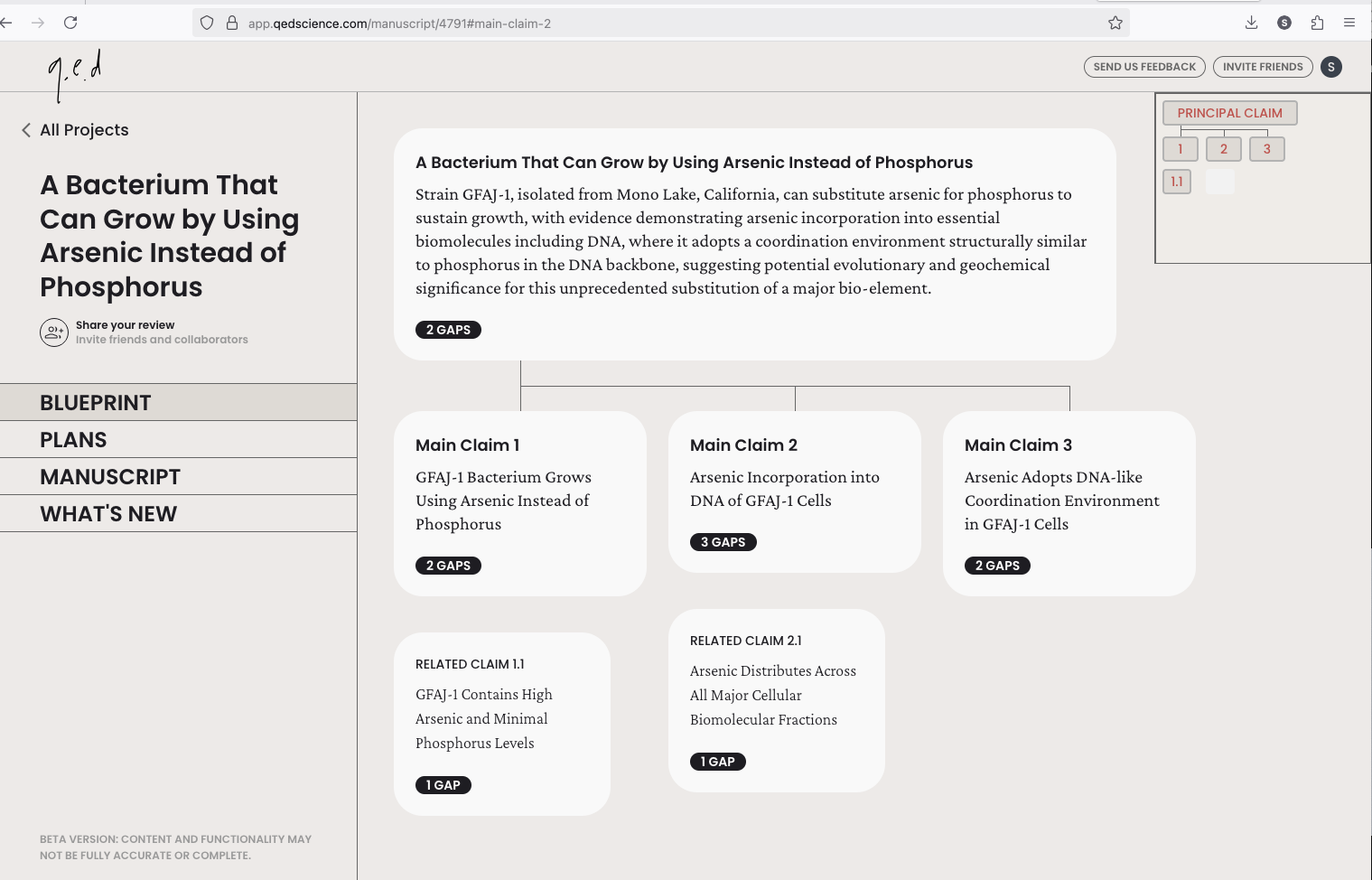News & Notes > q.e.d Science – an AI review tool for authors
q.e.d Science – an AI review tool for authors
bioRxiv | 2025-11-04
Peer review provides authors with feedback on manuscripts and ideally gives readers some assurance that a paper has been vetted by experts in the field. The extent to which it achieves these goals is often disputed, however, and the dependence of peer review on overburdened academics has prompted claims that the process is unsustainable.
Automated tools that augment human review could be a solution. Various AI-based platforms that analyze manuscripts are now being developed, and bioRxiv and medRxiv plan to integrate with these to provide options for authors in much the same way we do journals and other traditional peer review services. Our first pilot is with q.e.d Science, a service that uses generative AI to analyse the claims and supporting data presented in manuscripts and identify ‘gaps’ that warrant further work or revision of the claims. q.e.d Science then offers solutions to mitigate or address these gaps, helping researchers refine their claims and strengthen their conclusions. It also highlights the original aspects of the manuscript by comparing it with other papers and creates an overall report.

bioRxiv authors can now send papers directly to q.e.d Science from bioRxiv using the dedicated B2X pipeline.
To send a paper through to q.e.d Science, follow these steps:
- Go to your Author Area in the bioRxiv submission portal after completing a submission and click “Submit Preprint to External Author Service”.
- Then scroll down to the paper you would like to send and type ‘QED’ into the drop-down field.
- Click the Submit button once you have selected q.e.d Science and then Confirm the action.
The paper and all associated metadata will be transferred to q.e.d Science. The AI service will then send you an email with further details on how to proceed. Once the analysis is initiated, the review report is typically produced within about 30 minutes.

Authors who have already run papers through q.e.d Science will soon also be able to submit these automatically from q.e.d Science to bioRxiv. Authors will thus have the option to identify strengths and weaknesses in papers before they share preprints for the first time or as they revise them for resubmission in response to feedback.
Thousands of scientists are now using q.e.d Science As the landscape evolves, it will be interesting to follow how the balance of human review and machine-based review by tools like q.e.d Science shifts. By collaborating with services like q.e.d Science, we hope to enable experiments that optimize review for the Web and ultimately improve how scientists vet, evaluate and filter the literature.
